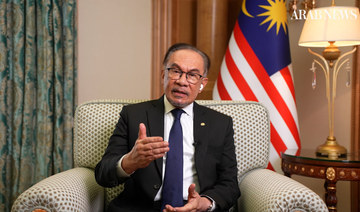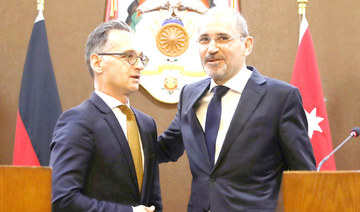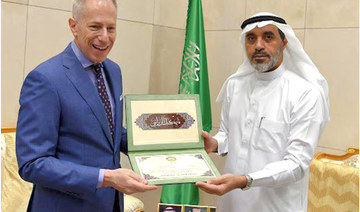Families are increasingly embracing the concept of organ transplants by overcoming cultural and religious concerns as Saudi Arabia expands its program to reduce the wait for patients in desperate need of organs.
Dr. Faisal Shaheen, director general of the Saudi Center for Organ Transplantation (SCOT), said transplant operations have increased with 92 percent of the families of brain dead patients consenting to donation when they know that it was the choice of the deceased.
About 40 percent of families give their consent if have they have no knowledge of the patient’s opinion on organ donation.
“There’s a clear increase in the number of cases where organs were removed for transplant,” Shaheen said, adding that awards granted to Saudi and non-Saudi donors are almost the same.
According to Shaheen, 527 kidney transplant operations were performed from 2003 to 2007, which increased to 673 (total from 2003 to 2012) in 2012. Liver transplants numbered 175 between 2003 and 2007, and increased to 271 in 2012. Heart transplants that numbered only 42 between 2003 and 2007 increased to 94 during the last five years. Only eight pancreas transplants were performed.
Shaheen said 37 percent more brain-death cases were reported to the center in the last five years. This demonstrates an improvement in doctors' awareness and the performance of hospitals’ intensive care units responsible for reporting potential cases to the center.
Dr. Ibrahim Al-Saegh, internal medicine consultant at a dialysis center, said he believed society members’ awareness regarding organ donation has improved.
“However, officials have some concerns regarding the issue of organ trafficking,” Al-Saegh said. “Organ donation has to be expanded under the supervision and control of a specialist body that organizes and coordinates donations and operations in a way that guarantees commercialization does not get involved.”
Al-Saegh stressed the importance of promoting controlled organ donation and transplantation. He said it starts with domestic scientific research and “not merely relying on the results of similar operations abroad before implementing them here.”
He also emphasized the importance of religious scholars’ role in disseminating awareness of organ donations of brain-dead patients. There is a gap between the number of those who need transplants and that of available organs, he said.
Shaheen agreed. He said the issue is one where religious, moral and social values overlap. The difficulties that face organ transplantation are from people refusing the principle because of social conventions or because they do not have the correct information about brain death.
However, Shaheen said it is important to clarify that Islam permits and encourages organ donation for the sake of saving the lives of those in need. He added that there are clear fatwas permitting it from the Board of Senior Scholars and from the Islamic Fiqh Academy. In terms of the moral aspect of the issue, the center applies clear procedures that guarantee non-commercialization and preserve the rights of donors and recipients, he said.
“For the donation of living relatives, medical committees are present in every hospital to examine a donor’s compatibility and make sure that the donation of one kidney or part of the liver would not affect the donor’s health,” Shaheen said.
For brain-dead organ donation, there are brain death pronouncement forms that must be signed by two consultants under the supervision of a SCOT team that ensure that all protocol procedures were followed. The deceased is transferred to the operation room for organ removal as soon as the family’s consent is obtained.
Shaheen said the Kingdom follows the World Health Organization’s criteria stipulating that donating organs and tissues have to be performed within moral restrictions and medical standards that is based on providing better health care for patients and preserving the rights of donors. The decision to donate organs while alive must be voluntary and requires ensuring the person was not pressured in any way.
Donation of organs after death requires ensuring that the deceased indicated when alive that he wanted to do it or was not opposed to it — with the family’s consent and as per the laws regulating organ donations in the country. For all countries there are clear medical measures for approving a donor and removing and distributing the organs.
Facebook has launched a new tool it called Organ Donor to encourage 900 million users to help and save the lives of patients all over the world through organ donation. The site’s founder and executive director said the tool is aimed at spreading awareness, adding that thousands die around the world every year because of the lack of organ donors.
“A donor, alive or dead, is honored by being granted King Abdul Aziz Medal in addition to a financial award. A donor is also granted permanent discount on Saudi Arabian Airlines flight tickets and a free periodic medical follow up at the facility where the donation took place.
Organ transplant started in the Kingdom with the Board of Senior Scholars’ approval in 1981. Crown Prince Salman established a center to coordinate organ donation two years later.
Organ donation gaining wide acceptance among Saudis
Organ donation gaining wide acceptance among Saudis
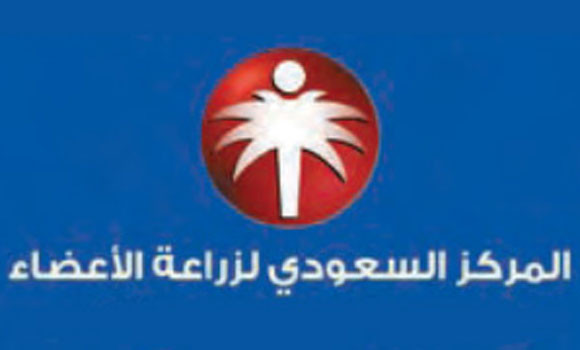
Frankly Speaking: Saudi Human Rights Commission chief outlines mandate, ambitions

- Hala Al-Tuwaijri cites “rapid advances, huge transformation” in women’s empowerment, particularly in the labor force
- Describes “humbling responsibility” of handling human rights file, highlighting need for judicial reform
DUBAI: Saudi Arabia is undergoing a “huge transformation” in relation to women’s empowerment thanks to comprehensive reforms to legal, civil, and social rights, Hala Al-Tuwaijri, the first woman to lead the the country’s Human Rights Commission, has said.
The Kingdom has seen rapid advances in the representation of women in positions of leadership, from Princess Reema bint Bandar Al-Saud, the first female Saudi ambassador to the US, to Sara Al-Suhaimi, the first female chair of Tadawul, the Saudi stock exchange.
Indeed, Al-Tuwaijri’s own appointment as president of the Human Rights Commission with the rank of minister back in September 2022 is proof in itself of the tectonic changes underway in Saudi Arabia.
“Those are examples of women who made it to the top. (But) that’s basically the tip of the iceberg,” Al-Tuwaijri told Katie Jensen, host of the Arab News current affairs program “Frankly Speaking.”
“What has actually happened in Saudi Arabia is a huge transformation, especially when it comes to the issue of women’s empowerment.”
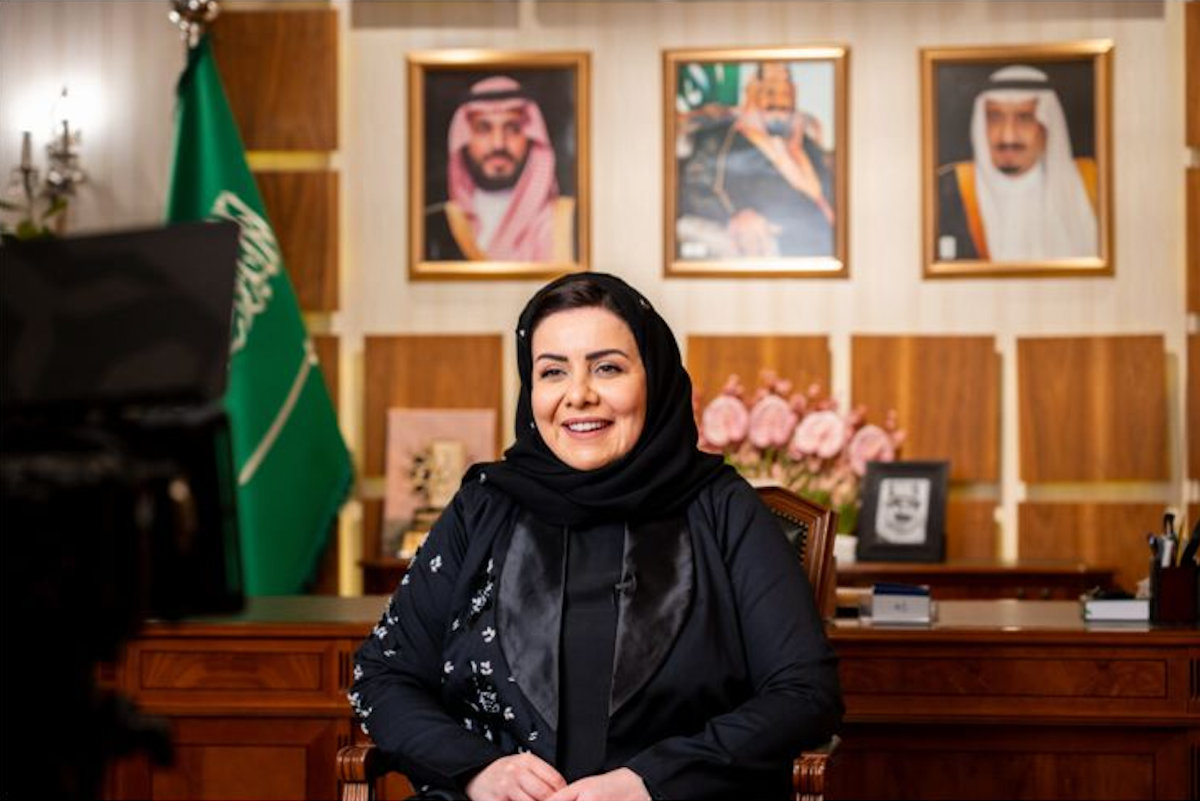
In a freewheeling interview, Al-Tuwaijri discussed the progress she has witnessed since assuming office and addressed the criticisms of Western nations that scrutinize the authenticity of Saudi Arabia’s advancements in human rights.
Nowhere is the transformation in the rights of Saudi women more obvious than in the workplace. Thanks to a slew of reforms and new legal protections, women now make up a significant portion of the labor force at every level.
“The approach was comprehensive,” said Al-Tuwaijri. “We basically expanded all the legal, civil, social rights and looked at legislation, procedures and everything that was actually obstructing women’s progress was actually moved away.
“The biggest achievement, I think, is how women’s empowerment has changed the face of the country. Now you see women everywhere working in every field. The pipelines for women to join the labor force were all unclogged and therefore you see women joining the labor force.
“And this was translated in the data about women’s empowerment and especially women’s participation in the workforce.”
Perhaps the best examples of this transformation are the Saudi women making strides in the fields of science, technology, engineering, mathematics and medicine — career paths that have traditionally been dominated by men.
“I would use the cliche ‘the sky’s the limit,’ but after (first Saudi female astronaut) Rayyanah Barnawi went to space, I think that metaphor does not describe the ambition of Saudi women,” said Al-Tuwaijri.
“I think that Saudi women have proved to be efficient and to be up to the positions that they’ve taken.”
Since 2016, the Kingdom has implemented a raft of reforms designed to empower women, from the lifting of the ban on driving and the relaxation of the male guardianship law to measures to combat violence against women and girls.
Although it is a challenging role, Al-Tuwaijri says her appointment to lead the Human Rights Commission reflects how seriously the Kingdom takes its obligations and its commitment to the shared values of the international community.
“This task of handling the human rights file anywhere in the world is a huge responsibility, a humbling one,” she said. “And also, it comes with a package of knowing you’re doing good for the people and for mankind in general. It has its own lofty values and principles as well.
“In Saudi Arabia, it’s no different. I come to work every day knowing that, yes, I’m doing my job on the one hand. But also, I know that this job includes the promotion and protection, the rights of people living in Saudi Arabia and also contributing to the international community and the new trends and approaches to human rights.
“So, the task is not a simple one. It’s not a straightforward one. It’s not that you have a goal and you have to accomplish it at a certain period of time. No, it’s ongoing. It’s dynamic. And it’s always changing, requiring a lot of exposure, communication with others.”
In a September 2023 interview with US broadcaster Fox News, Saudi Crown Prince Mohammed bin Salman admitted to being “ashamed” of the Kingdom’s laws after a retired teacher was sentenced to death for a critical post on social media.
“Shamefully, it’s true. It’s something I don’t like,” the crown prince told Fox News, highlighting his government’s efforts to reform and modernize the judiciary.
“We are doing our best … we have already changed tens of laws in Saudi Arabia, and the list has more than 1,000 items. In the cabinet they have only 150 lawyers, so I’m trying to prioritize the change day by day.”
He added: “But we are not happy with that. We are ashamed of that. But (under) the jury system, you have to follow the laws and I cannot tell a judge (to) do that and ignore the law, because … that’s against the rule of law. But do we have bad laws? Yes. We are changing that, yes.”
Asked about these comments, Al-Tuwaijri said the crown prince respects the authority of the Kingdom’s judiciary, but that reforms are necessary — measures that the Human Rights Commission is on board with.
“Yes, His Royal Highness the Crown Prince stated that. And I think it’s a verbal affirmation of the big initiatives that are taking place in terms of the transformation in the judicial system,” said Al-Tuwaijri.
“Three laws have been issued recently, all of them controlling the lives of people in a positive way — where by controlling we mean there is more clarity in terms of the judiciary and predictability, of course.
“The fact that all of this is taking place while we are also progressing, putting forward initiatives, is more like fixing a plane while you’re flying. And this is precisely what His Royal Highness the Crown Prince indicated.
“But in the same interview you have mentioned, he also showed so much respect for the judiciary. And I think every country that respects itself and its status has to also respect the judiciary.”
The Human Rights Commission is participating in this reform process “so the human rights lens is always applied when it comes to issuing a new law or reviewing one or giving advice on a certain procedure,” said Al-Tuwaijri.
“We have to make sure also that everything that’s happening in this journey of legal transformation is actually aligned with the human rights commitment.”
Although its reform agenda is driven by a broader domestic transformation plan under Vision 2030, the Kingdom engages with international agencies and human rights groups to ascertain where improvements can be made — provided they are based on fact rather than hearsay.
“In our mandate, we engage with all kinds of parties, whether it’s state, government organizations or non-government organizations,” said Al-Tuwaijri. “But the basis of this kind of engagement is cooperation, dialogue and constructive efforts.
“We do engage with all of these entities as long as the objective is to have a constructive dialogue that actually is on equal footing and, at the same time, understands the differences between us. This is basically how we function.”
She added: “And of course, we do monitor what the media addresses in terms of human rights issues, that includes everything. So, it depends on our relationship with these entities. We engage directly in cooperation and dialogue.
“And if we find that the reports are not based on facts but just meritless, hearsay or so, then we just focus on working on the ground and trying to continue our strategy and reach our goals and consider that (report) as one of so many reports that are actually politicizing human rights and not really engaging in a cooperative manner.”
In January, the UN held the Universal Periodic Review in Geneva, where Al-Tuwaijri emphasized Saudi Arabia’s determination to achieve the highest global standards in promoting and protecting human rights.
Despite the significant strides Saudi Arabia has made, several Western commentators have characterized this commitment as a PR stunt. Al-Tuwaijri brushed aside the criticism, pointing to the Kingdom’s positive record.
The Universal Periodic Review “covers a period where there were, on the ground, more than 100 reforms, and those reforms (have been) published,” she said. “They are supported with evidence, with data, and that is an actual manifestation of the reforms.
“Yes, some people would always criticize and some people would be cynical about what happens. But we keep open in terms of cooperation with states, government organizations, non-government organizations about addressing these issues and discussing areas of improvement.
“And for people who doubt, (who say) that it’s a stunt or that we’re not telling the truth, I invite them to come and visit the Kingdom of Saudi Arabia and meet actually with men and women from the Saudi community and listen to how much they have actually benefited from all of these improvements and changes and developments that happened on the ground.”
Asked whether the negative perception of Saudi Arabia among international rights organizations is influenced by political bias or unrealistic expectations, Al-Tuwaijri pointed to the positive feedback the Kingdom has also received.
“There were more than 135 comments given to the Saudi delegation in Geneva last January. And what was astonishing is that all 135 comments were introduced by acknowledgement of the improvement,” she said.
“It is obvious that compared to the previous report, there is great improvement that was acknowledged by the international community.”
She added: “Yes, unfortunately, there is bias not only against the Kingdom of Saudi Arabia, but generally against people from this region. But we try to overlook the negative implications of that bias and try to see the good in these approaches or reports or criticism and see what we can take from them.”
Al-Tuwaijri acknowledged that changing such attitudes would be a gradual process, but one that woule be achieved through continued engagement with friends and critics alike.
“The purpose is to make people see for themselves what is happening in Saudi Arabia,” she said. “Because the narrative is never complete, actually, without people witnessing it with their own eyes.”

Two-state solution will solve problems in the Middle East, says Chinese envoy to KSA

- Chang Hua emphasizes strategic partnership, advocates for global stability
RIYADH: The newly appointed Chinese ambassador to Saudi Arabia, Chang Hua, said that the issue of Palestine must be resolved.
Speaking at his residence in Riyadh, Hua expressed strong support for the establishment of an independent, fully sovereign state of Palestine.
“This is a basic solution to solve all the problems in the Middle East,” the envoy said.
The seven-month war in Gaza has killed more than 35,000 people and displaced hundreds of thousands of Palestinians.
“As a former ambassador to Iran and currently an ambassador to the Kingdom, I am honored to personally participate in establishing a mechanism — a joint Chinese-Saudi-Iranian committee. I will make more efforts to advance the mechanism to achieve further results.”
The resumption of relations between Saudi Arabia and Iran was established on March 10, 2023 in a deal brokered by China.
“China, as an important party to the Beijing Agreement, will continue to push Saudi-Iranian relations to progress continuously. We restore it to make joint efforts with Saudi Arabia in creating beneficial conditions to advance the implementation of the Beijing Agreement and enhance tripartite dealings.”
The ambassador added: “I think this mechanism could be a model for peace in the Middle East. In fact, in 2021, the minister of foreign affairs visited Saudi Arabia, Iran, and Turkiye on a tour in this region, and presented peace proposals to me within five points. We are still continuing this talk and we want to enhance stability and security in this region.”
Hua has decades of experience in the Middle East, having served as an ambassador in Yemen, Iran, and the UAE.
Addressing the relations between the two countries, the envoy said: “China and Saudi Arabia enjoy a comprehensive strategic partnership. In politics, the two sides have exchanged firm support on issues related to the other side’s core interests and major concerns.
“China views Saudi Arabia as an important power in a multipolar world, and places the development of relations with Saudi Arabia as a priority in its overall foreign policy, especially within its diplomacy in the Middle East.
“In addition, China and the Kingdom pursue an independent foreign policy. It calls on the two countries to preserve the international order based on the ‘United Nations Charter’ and international law. In the United Nations, the G20, the Shanghai Cooperation Organization and other international platforms and international and regional hot issues, China and Saudi Arabia have long maintained constant communication and close coordination, and we have worked together to promote global peace and stability and achieve development and prosperity.”
In December 2022, the first China-Arab Summit was held in Riyadh. “They (both sides) continue to work collectively to build the Chinese-Arab community with all its potential toward a new era. The Arab-Chinese summit is the first to amplify the driving force for the development of Chinese-Arab relations, but it is the forum in the new phase.”
The 10th session of the China-Arab Cooperation Ministerial Forum will be held soon. The Chinese side is prepared to work together with the Arab side to continue fostering the spirit of Arab friendship, strengthening and enriching China-Arab cooperation, thereby advancing the interests of the Chinese-Arab community at an elevated level for the future.
Saudi Arabia launches 1,000 Qur’an memorization sessions for Hajj season

- Qualified Saudi teachers will lead these efforts to enrich the experience of pilgrims
RIYADH: Sheikh Abdulrahman Al-Sudais, head of the Presidency of Religious Affairs at the Grand Mosque and the Prophet’s Mosque, has approved the launch of 1,000 sessions dedicated to Hajj pilgrims memorizing the Qur’an, Saudi Press Agency reported on Sunday.
This initiative aligns with the presidency’s plans for this year’s Hajj season to disseminate the morals of the Qur’an and its moderate message globally. Qualified Saudi teachers, who have memorized the holy book, will lead these efforts to enrich the experience of pilgrims.
Al-Sudais said that this initiative reflected the Kingdom’s leadership’s commitment to teaching, memorizing, interpreting and enhancing understanding of the Qur’an. He said that the sessions in the Two Holy Mosques were designed to provide educational and pedagogical content, as well as methodological approaches to spreading the Qur’an’s message and guidance.
The Presidency of Religious Affairs also aims to broaden the scope of education within these Qur’anic sessions, incorporating recitations and holidays related to the Prophet Muhammad.
Saudi Arabia leads offers to help Iran after crash of helicopter carrying President Raisi

- The Foreign Ministry said the Kingdom was following reports about the crash with “great concern”
- Qatar said it is ready to provide “all forms of support” for Iran’s search efforts after the helicopter crash
RIYADH: Saudi Arabia expressed its support for Iran and said it was ready to provide any assistance required after a helicopter carrying Iranian President Ebrahim Raisi crashed on Sunday.
The Foreign Ministry said the Kingdom was following reports about the crash with “great concern.”
Meanwhile, the Iraqi government said in a statement it had instructed its interior ministry, the Red Crescent and other relevant bodies to offer help to neighboring Iran in the search mission.
Iranian search and rescue teams were scouring a fog-shrouded mountainside after the helicopter carrying the president and Foreign Minister Hossein Amir-Abdollahian went missing in an “accident” on Sunday, state media said.
Fears grew for Raisi after contact was lost with the helicopter carrying him in East Azerbaijan province, reports said.
Raisi was visiting the province where he inaugurated a dam project together with Azerbaijan’s President Ilham Aliyev, on the border between the two countries.
“Today, after bidding a friendly farewell to the (visiting) President of the Islamic Republic of Iran, Ebrahim Raisi, we were profoundly troubled by the news of a helicopter carrying the top delegation crash-landing in Iran,” Aliyev said.
“Our prayers to Allah Almighty are with President Ebrahim Raisi and the accompanying delegation. As a neighbor, friend, and brotherly country, the Republic of Azerbaijan stands ready to offer any assistance needed,” he added.
Qatar said it is ready to provide “all forms of support” for Iran’s search efforts after the helicopter crash.
The UAE foreign ministry said in a statement that the country stands by Iran and is ready to provide support in efforts to find the helicopter carrying Raisi.
The Turkish Foreign Ministry said it was following developments in Sunday’s Iran helicopter accident with sadness and hoping for the president’s wellbeing, adding that action had been taken to provide all kinds of support to search and rescue activities.
The European Union said it had activated its “rapid response mapping service” to help Iran search for the helicopter.
Russia also said it is ready to extend help to Iran in connection with the crash.
“Russia is ready to extend all necessary help in the search for the missing helicopter and the investigation of the reasons for the incident,” foreign ministry spokeswoman Maria Zakharova wrote on the Telegram messaging app.
Saudi minister meets EU’s director-general for environment

- During the meetings, Al-Fadhli discussed various aspects of cooperation in the fields of water and environment
JAKARTA: Saudi Arabia’s Minister of Environment, Water, and Agriculture Abdulrahman Al-Fadhli held several bilateral meetings at the 10th World Water Forum in Jakarta on Sunday.
He met with the director-general of the EU’s environment department, Florika Fink-Hooijer, and Amy Khor, Singapore’s senior minister of state for sustainability and environment affairs, among other officials.
During the meetings, Al-Fadhli discussed various aspects of cooperation in the fields of water and environment, calling on countries to contribute to achieving the goals of the World Water Organization.


